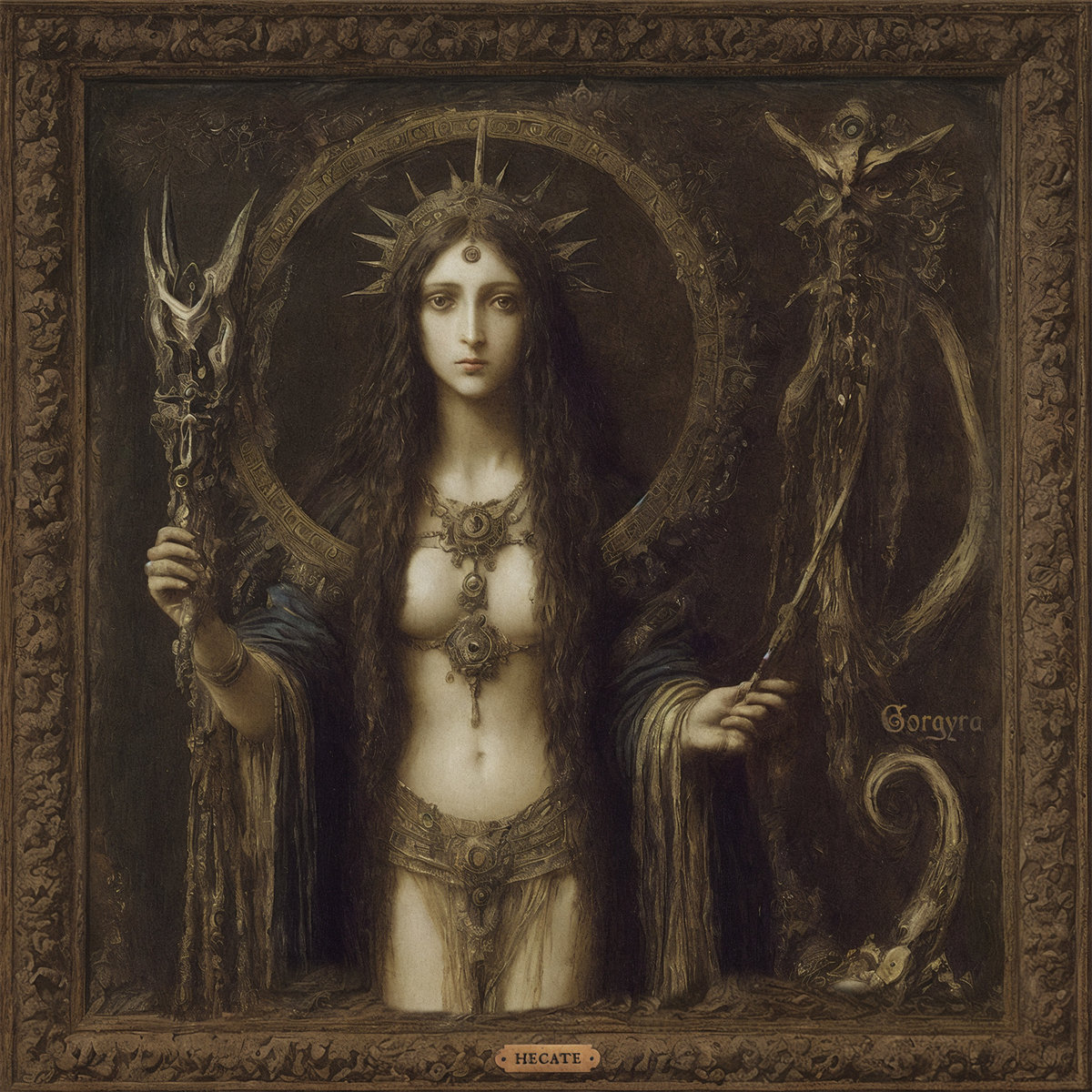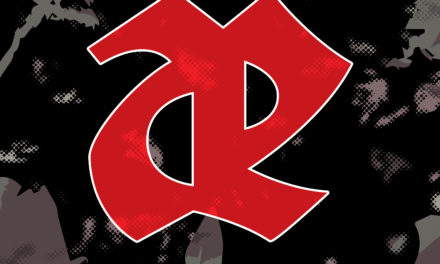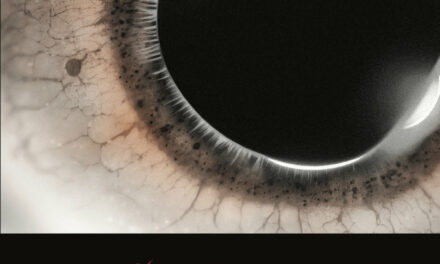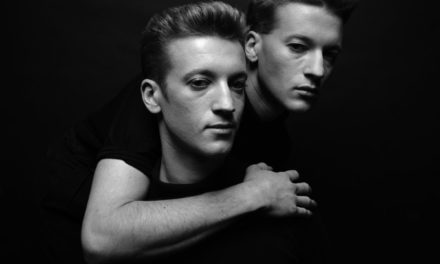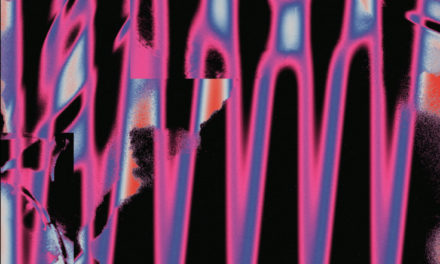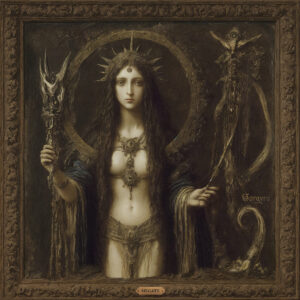
Gorgyra
Hecate
Detriti Records
Representing a wide diversion from Detriti’s usual beat of coldwave and lo-fi body music, the debut release from Iranian/German project Gorgyra was a cryptic and minimalist foray into classical mythology by way of neo-classical and folk instrumentation. Now officially a duo, Gorgyra’s first full length expands upon and fleshes out the project’s tantalizing promise, addressing a range of mythic and philosophical themes via a similarly wide range of musical modes.
Like its predecessor, Hecate links elements of Persian folk and broader neo-classical traditions with the moods and atmospheres (if not the instrumentation) of ritually-minded dark ambient. That in and of itself would be a sufficiently strong foundation for a record, but founding member Azin Zahedi is bringing her pedigrees in the art music and electro-acoustic spheres to full bear here, and between the weathered chorale of “Amor Fati” and the hauntological piano of “Nyx” a host of production and studio techniques add smoke and depth to Hecate.
Gorgyra’s focus remains upon dark renderings of ancient and folk music, however. “Athena”, a ruminative blend of deep drones and nimble hammered strings brings Arcana or Dead Can Dance to mind. On paper, it should feel of a kind with the ritual pulse and flute of “Mithra” (and surely there’s no figure to better represent the link between the ancient worlds of the west and middle east), but while the former has a loping and inviting slink bordering on darkwave, the latter has a stark and sober wariness as the flute casts questing light through the underworld.
While still drawing upon Greek myth and philosophy (with a little bit of Latin sprinkled on for good measure) in its titling, the variety of traditions and production styles Gorgyra trade in crack the gods and fates out of dusty historical frames and give them free and immediate movement in the mind of the listener. But at points the haunting beauty and simplicity of the music transcends production or historical reference. On “Ananke”, a mournful woodwind is recorded in isolation, at a distance, free of ornamentation or post-production. The breath, timbre, and slowly turning tones of the piece stand on their own, out of this time and the past alike.

